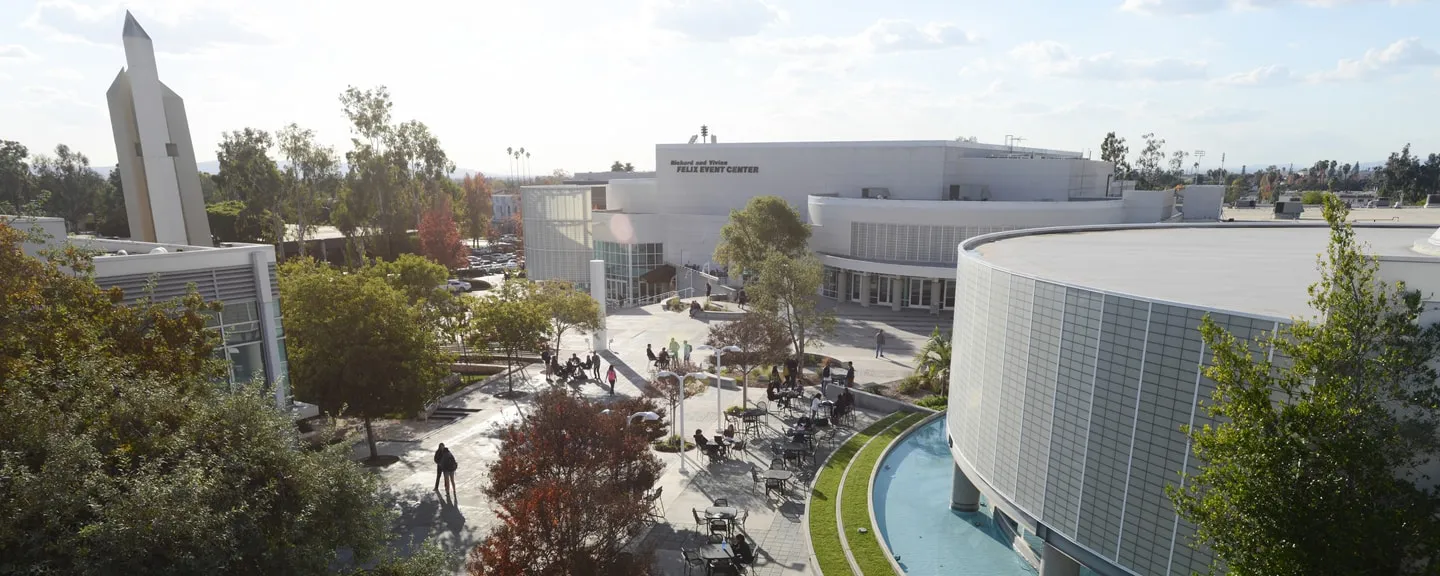- Home
- >
- APU Articles
- >
- News Article
Azusa Pacific University Rankings: The Impact of Diversity on Education
December 06, 2018 | Written By John Montesi

The recognition speaks to APU’s commitment to diversity and the benefits of learning within a diverse student body, said Keith Hall, EdD, chief diversity officer at APU. We spoke with Hall about the impact that diversity has on students’ college experiences.
The Value of College Diversity
Thanks to popular ranking systems like U.S. News—and a plethora of online information—prospective students and their families have unparalleled access for researching colleges and universities. Using the available information, they can better understand what distinguishes one school from the next, all while identifying a campus that has values they can identify with.
“Diversity rankings can point prospective students and families to institutions that reflect a diverse demography of students where they can acquire experience at learning, collaborating, and serving with peers, faculty, and staff from diverse backgrounds,” Hall said.
Diverse college experiences prepare students for an increasingly diverse world, while also broadening their perspectives in preparation for their career field and as global citizens. Diversity is an important aspect of the educational experience—one that can increase cross-cultural competence and improve learning outcomes for all students. Because of this, different types of diversity are also receiving increased recognition in and outside of the classroom.
Types of Diversity in Education
“Ethnic diversity refers to the differences in terms of shared cultural factors that may include ethnicity, nationality, language, regional culture, and common ancestry,” Hall explained. “Economic diversity considers the socioeconomic backgrounds and corresponding lived experiences of students.”
The different types of diversity represented on campus provide exposure to all types of perspectives and cultures, which is a key tenet of the liberal arts education. A school’s commitment to diversity is an expression of its holistic belief in both the liberal arts education and the value of everyone’s experiences and perspectives.
A true commitment to diversity extends beyond rhetoric and is woven into the core values of a university. “Our student body reflects a wide range of ethnic and economic diversity and other forms of intersectionality,” Hall said. “At APU, we strive to cultivate an infrastructure of academic, social, and financial services and resources that support the unique needs and holistic development of all students.”
How Does APU Foster Diversity?
When it comes to working and living in today’s world, one of the greatest educational assets a university can offer is a diverse student body. At Azusa Pacific, diversity is an expressed value that flows from continually striving to create a learning environment that respects and honors each individual’s uniqueness. And there is always room to grow and improve in this area.
“Considering the diverse demography reflected on APU’s campus and in the global landscape, many curricular and co-curricular programs and experiences are aimed at building the God-given capacity of students and equipping them to effectively engage a diverse culture,” Hall noted.
APU has two on-campus centers—the Student Center for Reconciliation and Diversity and the Center for Diversity, Equity, and Inclusive Excellence—that provide committed programming and services to the student body and campus community. These centers work in tandem to effectively engage and support the unique needs of diverse students, including minority student groups that have historically been underrepresented and marginalized.
Although APU’s recent rankings are only a numerical representation of campus diversity, they accurately reflect the school’s intentional efforts to welcome students from many cultures and backgrounds in an environment that strives to see each individual as a reflection of God’s image.
Are you interested in learning more about Azusa Pacific University and becoming a part of the diverse campus community? Get to know APU and apply today.